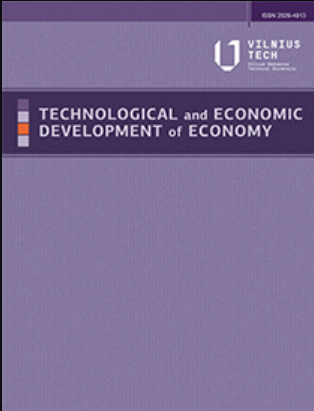THE CYCLICAL BEHAVIOUR OF FISCAL POLICY: ARE DEVELOPING COUNTRIES DIFFERENT, AND DO INSTITUTIONS MATTER?
IF 3.9
2区 经济学
Q1 ECONOMICS
引用次数: 0
Abstract
The available empirical evidence shows that fiscal authorities commonly revert to procyclical fiscal policies instead of following the normative prescription of budgetary countercyclicality. The available empirical studies suggest that this phenomenon may be attributed to weak fiscal institutions. Hence, it is often advocated that strengthening institutions in the developing countries is a reliable way to improve the cyclical properties of fiscal policy. In this paper, we challenge this view by showing that the impact of institutions on the cyclical behaviour of fiscal policy is not uniform across all countries and differs significantly between advanced economies and the developing ones. In the latter, the impact of institutions on the quality of fiscal policy proves to be weak, which is in stark contrast to the strong relationship observed in developed economies. This surprising result suggests that the focus on improving institutional quality may be of little help as a tool to increase the countercyclicality of fiscal policy in the developing economies.财政政策的周期性行为:发展中国家不同吗?制度重要吗?
现有的经验证据表明,财政当局通常会回归顺周期财政政策,而不是遵循预算反周期的规范处方。现有的实证研究表明,这一现象可能归因于财政制度薄弱。因此,人们经常主张,加强发展中国家的制度是改善财政政策周期性特性的可靠途径。在本文中,我们通过展示制度对财政政策周期性行为的影响在所有国家并不统一,并且在发达经济体和发展中经济体之间存在显着差异来挑战这一观点。在后者中,制度对财政政策质量的影响被证明是微弱的,这与发达经济体中观察到的强烈关系形成鲜明对比。这一令人惊讶的结果表明,把重点放在提高制度质量上,可能无助于提高发展中经济体财政政策的逆周期性。
本文章由计算机程序翻译,如有差异,请以英文原文为准。
求助全文
约1分钟内获得全文
求助全文
来源期刊
CiteScore
10.00
自引率
8.50%
发文量
66
审稿时长
15 weeks
期刊介绍:
Technological and Economic Development of Economy is a refereed journal that publishes original research and review articles and book reviews. The Journal is designed for publishing articles in the following fields of research:
systems for sustainable development,
policy on sustainable development,
legislation on sustainable development,
strategies, approaches and methods for sustainable development,
visions and scenarios for the future,
education for sustainable development,
institutional change and sustainable development,
health care and sustainable development,
alternative economic paradigms for sustainable development,
partnership in the field of sustainable development,
industry and sustainable development,
sustainable development challenges to business and management,
technological changes and sustainable development,
social aspects of sustainability,
economic dimensions of sustainability,
political dimensions of sustainability,
innovations,
life cycle design and assessment,
ethics and sustainability,
sustainable design and material selection,
assessment of environmental impact,
ecology and sustainability,
application case studies,
best practices,
decision making theory,
models of operations research,
theory and practice of operations research,
statistics,
optimization,
simulation.
All papers to be published in Technological and Economic Development of Economy are peer reviewed by two appointed experts. The Journal is published quarterly, in March, June, September and December.

 求助内容:
求助内容: 应助结果提醒方式:
应助结果提醒方式:


